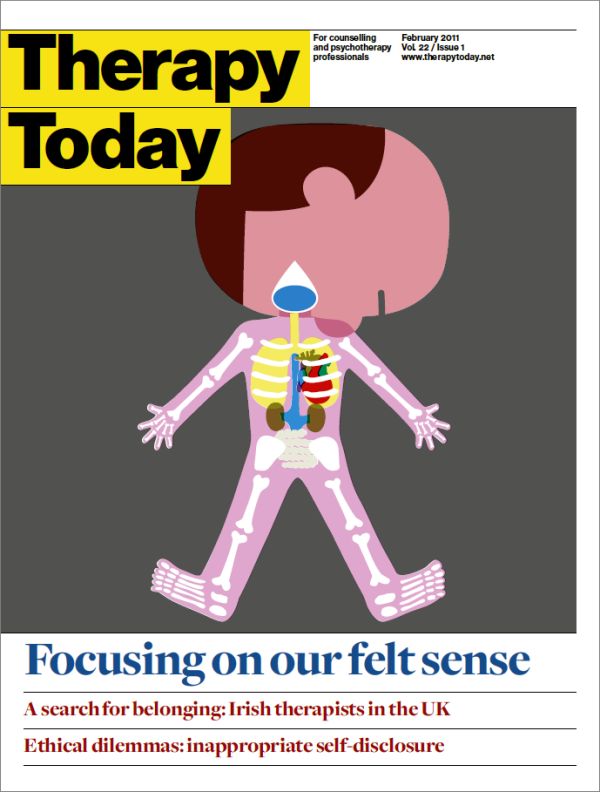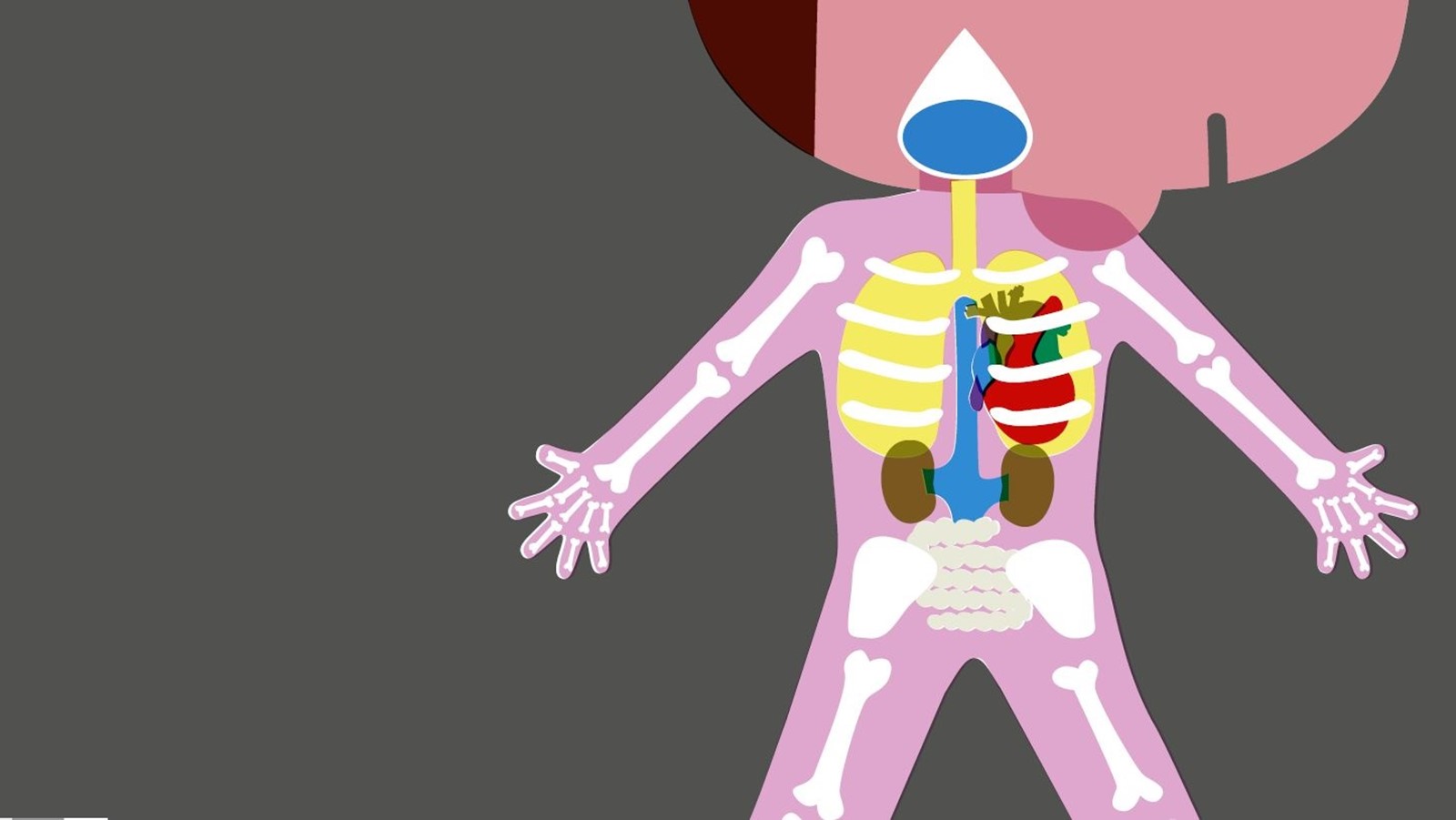In this issue
Features
The wisdom of the body
Exploring the link between the nervous system and a form of introspection that centres on inner body awareness, directing the client’s attention towards their physiology.
Focusing and the person-centred way
Therapeutic focusing helps clients engage in an immediate and physical way with their experiencing.
Home is where the couch is
How does one manage feelings about belonging and being connected in a country not of one’s birth?
The internal supervisor
Is our internal supervisor the combined voice of the best teacher and supervisor we have ever had, internalised in our head?
Regulars
In practice
Kevin Chandler: A seat with a view
In the client's chair
Orla Murray: A possible connection
In training
Alex Erskine: Learning from personal therapy
From the chair
Dr Lynne Gabriel: Regulation: a change of direction?
Questionnaire
Mark Aveline
Fiction
The Wednesday Group
Day in the life
Stuart Parsons
Dilemmas
Inappropriate self-disclosure?

Articles from this issue are not yet available online. Members and subscribers can download the pdf from the Therapy Today archive.
Editorial
The publication last week of the Government’s new mental health strategy – ‘No health without mental health’ – is encouraging and represents a huge step forward in mainstreaming mental health. But the optimism created by the accompanying announcement that the Government would allocate another £400 million for psychological therapies faded rapidly with the subsequent sacking of Professor Dave Richards as a National Advisor to IAPT for suggesting that the money would have to be found from efficiency saving in the NHS.
BACP had issued a press release welcoming the new money and commitment to extending the IAPT programme to older people, those with long-term physical conditions and children and adolescents but also warning against a one-size-fits-all approach to therapy. IAPT for children for example would require them to be labelled with a mental health problem such as anxiety or depression before they could access help while the skill set of staff who work effectively with older people is different from that needed to work with younger adults.
We also know only too well that the new government strategy is being launched against a background of serial closures of counselling services, day centres and community services. In our Day in the life feature this month we talk to Stuart Parsons from Wigan Family Welfare, a long-standing third sector organisation. He says: ‘It’s almost apocalyptic for the third sector, as well as the local authority and statutory services. These are desperate times and we all seem to be in the same boat without a paddle.’
In a letter to Therapy Today, Barry McInnes writes: ‘It’s a tragedy that some well-established and high-performing NHS therapy services have been the casualties of what feels at present like an expensive leap of faith.’
Sarah Browne
Editor
